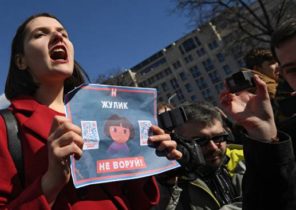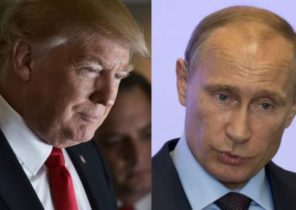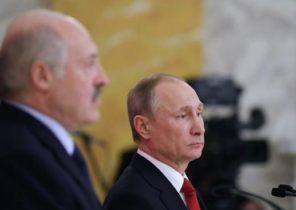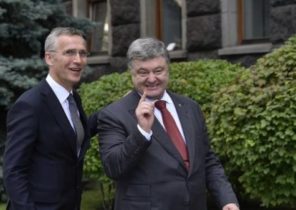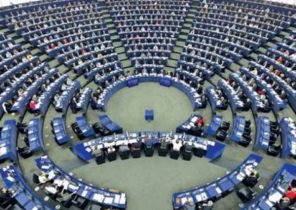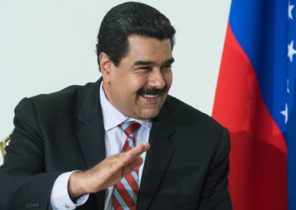
Transition between the administrations of Obama and trump did not guarantee political reconciliation, but only kindled a passion in the media that heralds a storm of passions around the work of the future President. The former President suddenly took decisions with more serious consequences: the UN resolution condemning the construction of Israeli settlements, the expulsion of Russian diplomats.
The new President in turn took the first steps on the international stage with a series of loud tweets and interviews that have consistently received a wide response in the world and caused a sharp reaction from China and Mexico. At the same time he refused the briefings of the intelligence community. Now Obama’s successor is in the spotlight of the entire planet.
The President uses his informational capital via the Internet should be at the center of his diplomatic activities. This can dramatically change the nature of the relationship of the White house and the intelligence community that structure the presidential decision-making mechanisms. This covert struggle for the formation and implementation of us policy has already begun.
Campaign, election and transition period bear the stamp of Russia, that is a shame for the entire American intelligence community. To understand what is happening now between the Russian and American intelligence services, need to go back to 20 years ago. In 1996, the Clinton administration staged the intervention in Russia to seek re-election of Boris Yeltsin and not to allow the Communists to power.
In addition, in 1996 in Moscow secretly passed the first Russian-American talks on cyberspace. Then the Russian side wanted the adoption of the UN resolution banning “logic bombs” (activated at some point the virus) and disinformation operations, including terrorist activities in this field to limit the risks of internal destabilisation. Then Russia was defeated in Chechnya, the jihadists carried out a massive operation in the territory of the Russian Federation.
The American side, in turn, were opposed to such regulation through international agreements for ideological and operational reasons. Washington then considered the cyberspace as a means of asserting his dominance in the economy (including European allies), gain technological advantages over rivals and the strategic distribution of private values in civil societies.
20 years later, the United States, China and Russia are large-scale defensive and offensive operations in cyberspace, in which (directly or indirectly) involved a number of non-governmental organizations, industrial enterprises, and individuals or groups. Digital sovereignty and control of data are an indispensable condition for strategic autonomy. Sending the main part of resources to priorities (the fight against terrorism and the preservation of the advantages over China), the American intelligence community turned its back on Russia, which was considered a simple regional power.
The ideological determination of Moscow, the rise in its military capabilities and its investment in the digital sphere rather not even underestimated, and analyzed in isolation. But Vladimir Putin’s Russia could use the contempt of America for development and implementation of a coherent strategy. By combining the different registers of activity, she was able to achieve psychological effects in a number of Western leaders, primarily on Donald trump.
At this stage you need to avoid two pitfalls. It would be absurd to explain the victory of trump alone Russian cyber attacks. A variety of informational reports sow confusion, which makes missing the most important. The phenomenon of trump corresponds to a profound sociological transformation of the United States and their relationship to the world. The formation of the middle class in developing countries came at the expense of the American middle class, which is the election trump recalled his own establishment. At the same time, it would be risky to release Russia, and other powers, from the responsibility for the operation of disinformation and discredit rival political regimes. In Moscow the hour of “controlled chaos”, that is, the phase of the dissolution of Western order, which implies in particular the devaluation of democratic regimes to justify the authoritarian. Yesterday, the rhetoric about the values presented by the Western hypocrisy, today European folklore.
Donald trump proclaimed political course based on the transaction and a unilateral approach. In the near future it could run into three obstacles. First of all, his first meeting with Putin will attract the most attention of all the world’s media, forcing it to show results if he wants to show that promise. Thus for him will follow their own intelligence community, is ready to interpret any concession as a sign of a real or fictional relationships.
Further, trump can alienate the two main movements in the digital field: blame the Silicon valley digital industry, the defense industry, which is worried about vulnerabilities.
Finally, Trump will have to find a practical answer to Plato’s question: who will osterie themselves watchmen? Probably he is, but he is unlikely this with a loud “tweets”.
